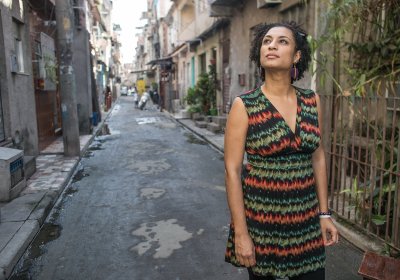This month marked two and a half years since the assassination of Brazilian socialist councillor Marielle Franco. Green Left spoke to Andre Mozor about the campaign demanding justice for Marielle and Brazil’s worsening political and health crisis.
Marielle Franco
On March 14, 2018 in the centre of Brazil’s Rio de Janeiro, two gunmen in a car murdered Municipal Chamber Councilor Marielle Franco and her driver, Anderson Pedro Gomes. Unlike most of the city’s political leaders, Marielle came from Rio’s favelas. And many of the favelas’ millions of marginalised and mostly black residents saw her as their champion.
A former military police officer and former fire fighter have been detained on suspicion of involvement in the killing of Black activist and Rio de Janeiro city councillor Marielle Franco, along with her driver Anderson Gomes on March 14.
The body of Carlos Alexandre Pereira Maria was found on April 8 in a bullet-riddled car in Curumau, east of Rio de Janeiro, local media reported.
Pereira, 37, had been cited to testify in court as part of the investigation of the March 14 assassination of councilwoman and socialist activist Marielle Franco and her driver Anderson Gomes. Franco was a strong opponent of the military take-over of Mare, a poor neighbourhood in Rio home to about 140,000 people.
In Brazil and around the world, many were shocked by the egregious act of cold-blooded murder that took place on March 14 — and that put on display the open wounds of the country’s 2017 institutional coup, writes Tatiana Cozzarelli.
Across the world, people have responded with outrage, sadness and grief to the assassination of Brazilian pro-poor activist Marielle Franco and her driver Anderson Pedro Gomes in Rio de Janeiro on March 14.
Brazil is one of the world’s most dangerous countries for leftist activists.
Prominent Brazilian human rights activist and counciller for the left-wing Party of Socialist and Liberation (PSOL) Marielle Franco was assassinated in Rio de Janeiro on March 14. The openly gay councilor was outspoken in defence of the poor and against racism.







